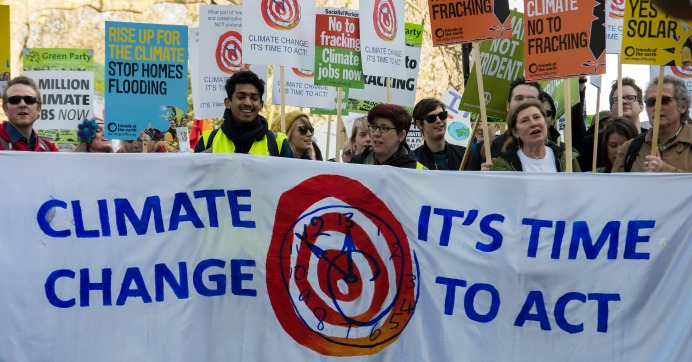
Last week, thousands of snow geese died in Montana after landing on the acidic, metal-laden waters of an old open pit mine to escape a snowstorm.

For the first time, scientists have estimated the weight of all of the structures, products and waste that humans have created.

Warming could drive the loss of at least 55 trillion kilograms of carbon from the soil by mid-century, or about 17% more than the projected emissions due to human-related activities during that period.

Abnormally high water temperatures caused by you-know-what are being blamed for the worst coral die-off ever recorded along Australia's Great Barrier Reef.

A new report from the WWF reveals that planned infrastructure projects throughout Southeast Asia could devastate wild tiger populations.

Polluted city air has now been identified as a possible means of transmission for resistant bacteria. Researchers have shown that air samples from Beijing contain DNA from genes that make bacteria resistant to the most powerful antibiotics we have.

The compelling vision is of a world where agriculture makes smarter use of less resources, providing more food with less carbon.
The Indian capital, Delhi, is experiencing its most dangerous levels of air pollution in years. In some areas, the level of air pollution is 10 times more than the recommended safe limit.

Demand for palm oil is expected to more than double by 2030. For mindful consumers weary of contributing to environmental degradation, it is increasingly difficult to avoid. One estimate suggests that more than 50 percent of all supermarket products contain it in one form or another.
Join Leonardo DiCaprio as he explores the topic of climate change, and discovers what must be done today to prevent catastrophic disruption of life on our planet.

New study says that unless nations ramp up their carbon-reduction pledges before 2020, it will be nearly impossible to keep warming to 2 degrees.

An analysis of 15 years' worth of experimental research into the health risks posed by sweetened beverages is raising questions about the impartiality and credibility of studies funded by the soda industry.

A new study shows that three of the Amundsen sea’s frozen gateways are melting away faster than we realised, raising the spectre of an ice sheet collapse that could trigger a metre of global sea level rise.

With atmospheric carbon dioxide concentrations having reached 400 ppm 2015 and with no signs of them abating in 2016 the World Meteorological Organization (WMO) said that "a new era of climate change reality" is upon us.

As the population grows over the next 20 years half the world will be left malnourished, an independent panel of experts on food and agriculture warns.